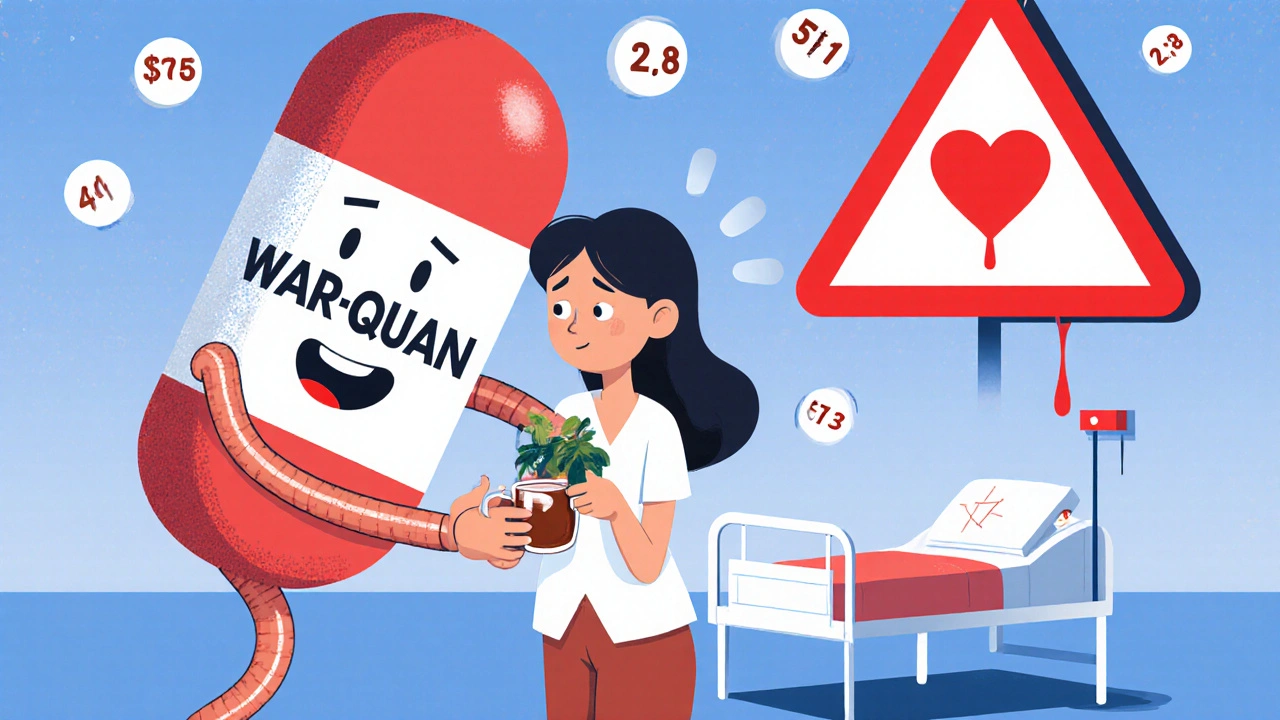Natural Remedies and Anticoagulants: What Works, What Risks, and What You Need to Know
When you're managing a condition like diabetes or heart disease, natural remedies, plant-based or lifestyle approaches used to support health without prescription drugs. Also known as herbal supplements, they're often chosen for their perceived safety and fewer side effects. But here’s the problem: many of these remedies don’t play nice with anticoagulants, medications that prevent blood clots by thinning the blood. Also known as blood thinners, they’re critical for people with atrial fibrillation, deep vein thrombosis, or after stent placement. Mixing the two can be dangerous—sometimes life-threatening.
Take garlic, for example. It’s a popular natural remedy for lowering blood pressure and improving circulation. But it also has natural compounds that act like mild anticoagulants. If you’re already on warfarin or apixaban, adding large amounts of garlic supplements can push your blood too thin, leading to nosebleeds, bruising, or worse. Same with ginger, ginkgo biloba, and even high-dose vitamin E. These aren’t harmless teas—they’re active substances that change how your body handles medication. Studies show that herbal supplements like St. John’s wort can even make anticoagulants less effective, increasing your risk of stroke. And here’s the kicker: most people don’t tell their doctor they’re taking them. They assume "natural" means "safe," but that’s not how biology works.
Diabetes adds another layer. Many people with type 2 diabetes turn to cinnamon, bitter melon, or fenugreek to help control blood sugar. But these can also affect how your liver processes drugs, including anticoagulants. If your blood sugar drops too low while your blood is too thin, you’re caught in a dangerous double bind. Even something as simple as green tea—often seen as a healthy drink—can interfere with how your body breaks down warfarin, making your INR levels unpredictable. That’s why your pharmacist or doctor needs to know every pill, powder, or drop you take, no matter how "natural" it seems.
You don’t have to give up natural approaches entirely. But you need to treat them like medicine—not afterthoughts. Some, like omega-3s from fish oil, are fine in low doses under supervision. Others, like turmeric extracts or dong quai, should be avoided completely if you’re on blood thinners. The key isn’t fear—it’s awareness. The posts below give you real comparisons, documented interactions, and clear guidance on what’s worth trying, what’s risky, and what you should skip. No fluff. No guesses. Just what you need to stay safe while managing your health.

Dong Quai and Warfarin: What You Need to Know About the Bleeding Risk
Haig Sandavol Oct 30 11Dong Quai can dangerously increase the blood-thinning effects of warfarin, raising the risk of serious bleeding. Learn why this herbal supplement should be avoided if you're on anticoagulant therapy.
More Detail